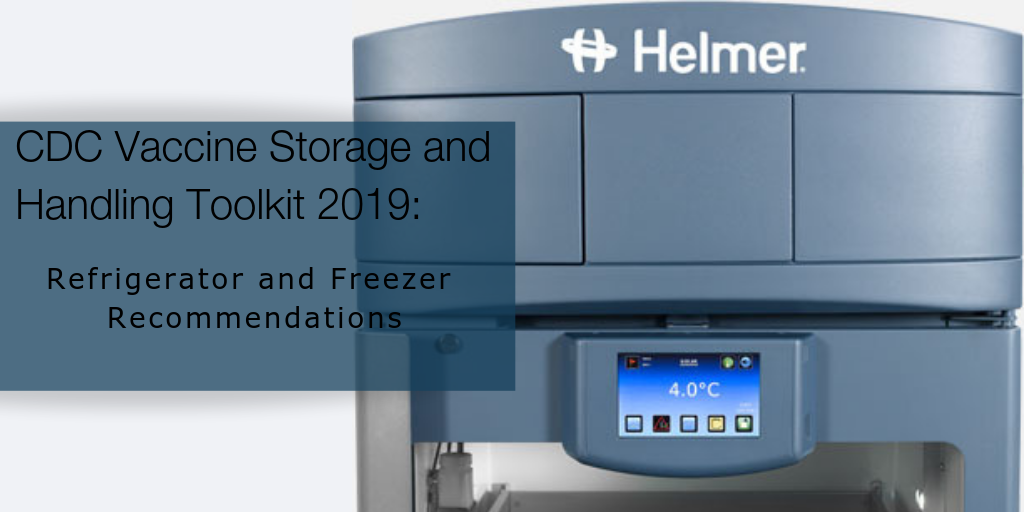
The Vaccine Storage and Handling Toolkit reflects best practices for vaccine storage and handling from Advisory Committee on Immunization Practices (ACIP) recommendations, product information from vaccine manufacturers, and scientific studies.
The redesigned 2019 Vaccine Storage and Handling Toolkit helps health care providers find the information they need quickly and easily. Revisions include:
- A reorganized layout with color coded sections to help better navigate the toolkit
- Updated job aids and resource documents
- Updated visuals for the vaccine storage and handling recommendations and best
The toolkit outlines CDC Recommendations which are the minimal actions required to protect your vaccine supply as well as CDC Best Practice which outlines additional actions, practices and procedures to enhance protection of your vaccine supply.
It is important your facility has proper storage and monitoring equipment that is set up correctly, maintained appropriately, and repaired as needed. This equipment protects patients from inadvertently receiving compromised vaccine and your facility against costs of revaccinating patients, replacing expensive vaccines, and losing patient confidence in your practice.
Vaccine Storage Units: Refrigerator and Freezer Recommendations
There are several types of vaccine storage units available. Purpose-built units are specifically designed to store vaccines. However, household-grade units are also an acceptable option for vaccine refrigeration under the right conditions. Use purpose-built or pharmaceutical-grade units designed to either refrigerate or freeze. These units can be compact, under-the-counter style or large. Purpose-built units, sometimes referred to as “pharmaceutical grade,” are designed specifically for storage of biologics, including vaccines.
These units often have:
- Microprocessor-based temperature control with a digital temperature sensor (thermocouple, resistance temperature detector [RTD], or thermistor)
- Fan-forced air circulation with powerful fans or multiple cool air vents promoting uniform temperature and fast temperature recovery from an out-of-range temperature.
Household-grade units can be an acceptable alternative to pharmaceutical-grade vaccine storage units. As the name implies, these units are primarily designed and marketed for home use. However, the freezer compartment of this type of unit is not recommended to store vaccines and there may be other areas of the refrigerated compartment that should be avoided as well. If your facility provides frozen vaccine, a separate freezer unit is necessary.
To fully ensure the safety of vaccines, equipment should include a recommended unit with enough space to accommodate your maximum inventory without crowding.
Storage Unit Placement
Good air circulation around the outside of the storage unit is important. Place a storage unit in a well-ventilated room, leaving space between the unit, ceiling, and any wall. Nothing should block the cover of the motor compartment. The unit should be firm and level, with the bottom of the unit above the floor. Make sure the unit door opens and closes smoothly and fits squarely against the body of the unit. If not secured properly, unit doors pose a risk to maintaining appropriate internal temperatures of vaccine storage units. Studies find most units work best when placed in an area with standard indoor room temperatures, usually between 20° C and 25° C (68° F and 77° F). Check the manufacturer-supplied owner’s manual for additional guidance on placement and spacing.
Do not store any vaccine in a dormitory-style or bar-style combined refrigerator/freezer unit under any circumstances.
These units have a single exterior door and an evaporator plate/cooling coil, usually located in an icemaker/freezer compartment. These units pose a significant risk of freezing vaccines, even when used for temporary storage. (Note: Not all small storage units are dormitory- or bar-style units. Compact, purpose-built units for biologics can be used to store vaccines.)
Storage Unit Doors
A door that is not sealed properly or left open unnecessarily not only affects the temperature in a unit, it also exposes vaccines to light, which can reduce potency of some vaccines. Consider using safeguards to ensure the doors of the unit remain closed—for example, self-closing door hinges, door alarms, or door locks.
At Helmer Scientific, we aim to design our refrigerators and freezer to help you follow vaccine storage and handling recommendations. From concept to manufacturing are units are produced in an FDA regulated facility to provide you with the highest quality equipment for storing vaccines and other biologics. You can full our full line of purpose built, pharmaceutical refrigerators and freezers at the link below.
All information in this blog post is directly from the 2019 CDC Vaccine Storage and Handling Toolkit




